Rivers
Don Urges Govt To Be Impartial In Tackling Crisis
Alecturer at the Ignatius Ajuru University of Education (IAUE), Rumuolumeni, Port Harcourt, Prof Chibuzor Chile Nwobueze, has called on government to be impartial and objective in tackling issues that precipitate crisis in the region.
Nwobueze, a Professor of Peace and Conflict Studies, made the call recently while delivering the 64th inaugural lecture of the university titled, “Live and Let Live: A Framework for Sustainable Peace and Development in the Niger Delta, Nigeria” at the university auditorium.
The Associate Dean, Postgraduate School, said government should ensure that developmental agencies are well supervised, monitored and funded to pursue their objectives to reality.
He also called for an upward review of the fines paid for oil spillages and gas flaring in Nigeria, saying that it would go a long way in discouraging these activities.
Government, Professor Nwobueze added, “should embrace collaboration and joint problem-solving frameworks in the area of artisanal refining and ensure that the venture provides employment to the locals”.
According to him, “the fact that they can design those makeshift refineries means that with the right training and support, people involved in the illegal venture can do it professionally and at a larger and regulated scale.
“The entrepreneurial prowess demonstrated in artisanal refining by the Niger Delta youths can be transformed for huge economic gains, not only for the youth of the region, but also for the Nigerian economy”.
Nwobueze noted that discouraging and putting an end to artisanal refining in the Niger Delta requires a comprehensive approach that will consider the root causes of the tradition, promote alternative livelihood options, strengthen law enforcement and regulations, promote community engagement and participation, and also address the negative impacts of artisanal refining on the environment, public Health and socio-economic development.
For the country to succeed in protecting the society from crime, the 64th inaugural Lecturer stressed that much creative efforts and programmes have to be put in place.
“By implementing these strategies, the Nigerian Government and other stakeholders can contribute to sustainable development and peace in the Niger Delta”, he said further.
The peace expert noted that “the Niger Delta region has high population of uneducated, unemployed and idle youths who are highly prone to violence.
“The frustration resulting from that weak political, structural and social peace building frameworks forced many members of the community into revolutionary violence”.
He continued that “violence will change nothing. Only a joint problem-solving strategy characterised by collaboration and consensus building will do.
“This approach leads to different forms of fence mending, acknowledgement of wrong doing, forgiveness, expression of mercy, reconciliation, trust, confidence building and peace.”
Professor Nwobueze remarked that there can be no development in a place where there is no peace.
He defined peace as “non-violence and constructive management of disputes, good governance, respecting the rights and dignity of others, sound business environment, high level of human capital, low level of corruption, efficient and effective communication system, freedom from want and fear, sustainable human security and good neighbourliness”.
According to the peace expert, the environmental problems currently being faced by Nigerians can no longer be solved by individual nations or by using military, bureaucratic or autocratic methods as these only increases opposition and delays remedial efforts.
“What is demanded”, he opined, “is the collective actions of everyone. To implement sustainable solutions to global environmental problems, all stakeholders need to learn to work together.”
Prof Nwobueze, therefore, advocated for “greater prioritisation of youth needs in all situations since they are the main actors in security and development issues”, hinting that neglecting their basic needs has knock-on effects on society.
He emphasised that an approach which prioritises youth welfare requirements would have positive knock-on effects on society in times of peace building.
Nwobueze encouraged Nigerians to remain selfless in service, patriotic in action and focused on nation building, no matter the challenges faced today.
He also advised that no matter the grievance against, or expectations from the Government and Oil Companies, Niger Deltans must understand the peace building value of being good to one another.
For the Peace Expert, there is no justification whatsoever for criminality, and lawlessness should also not be tolerated.
In his remarks, the Acting Vice Chancellor of IAUE, Prof Okechuku Onuchuku, charged all to maintain peace, stressing that one who invokes the storm on his people cannot prevent his house from destruction.
He advised agitators against inventing crisis, emphasising that they may not have control over the outcomes.
Professor Onuchuku appealed to the Federal Government to provide modern and adequate infrastructures to the people of the region, especially since that is where the resources sustaining the country is coming from.
While calling for alternative dispute resolution, he stressed the need for peaceful coexistence for growth, progress and sustainable development, “the kind that will not jeopardise the future of unborn generations”.
He also called for peace building to be included in the school curriculum.
In a vote of thanks, Professor Anthony Adele Orlu expressed gratitude to all who graced the event and urged them to sustain the peace for the country to move forward.
By: Sogbeba Dokubo
Niger Delta
Rivers Begins, Supplemental Polio Vaccination, Morrow
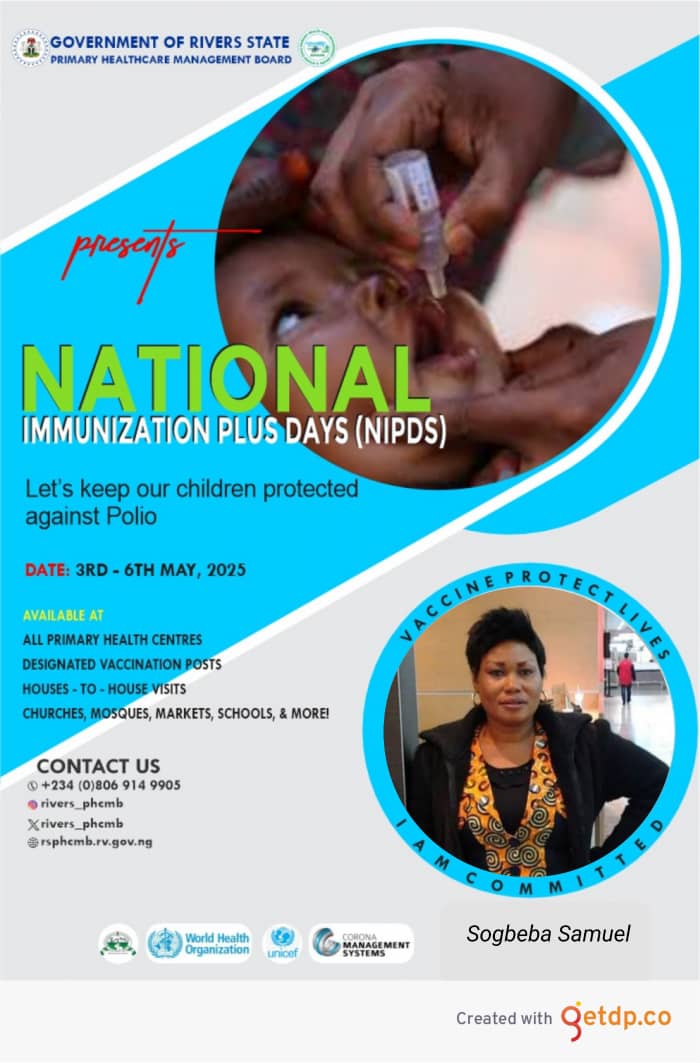
The Rivers State Primary Healthcare Management Board (RSPHCMB) says it will commence Supplemental Immunization activities on Saturday, May 3, 2025, to vaccinate children from 0-5 years across the State.
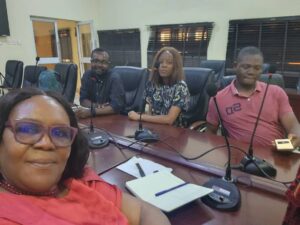
The State Health Educator, Dr. Diana Babbo, who stated this during a sensitisation meeting with Media Advocate for Health, Rivers State, on the update of immunization exercise in Rivers State, said the National Immunization Plus Days (NIPDs) is a re-enforcement of the routine immunization at the health facilities.
According to her, it is aimed at boosting polio immunisation against the circulating variance of polio virus currently threatening the total eradication of polio in the country.
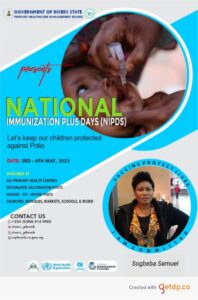
She further stated that there are four pillars of polio eradication, namely routine immunization (administered on babies in the health centre), supplemental immunization activity (supplements to boost the babies), surveillance (searching for children that have weakness in their legs or some oart of their bodies), and outbreak response.
The Health Educator noted that the Novel Oral Polio Vaccination Type 2 (NOPV 2) will be administered to children under the age of 0-5 years, which targets a specific polio still in existence in communities and capable of causing paralysis among the stated categories of children, despite the country being certified a polio-free nation.
Dr. Babbo further stated that this year’s NIPDs will address the high number of unresolved non-compliance cases in the State.
She debunked what she tagged a false rumour by mischief makers which claimed that the vaccines are responsible for the development of autism in children.
She said, “vaccines are not known to be responsible for the development of autism. We’re just hearing that. The truth is that one cannot know everything.
“That aspect that has been found, have we looked into other aspects, such as genetically modified foods, drinks, and milks that our children are taking?
“Have we also looked at genetic compatibility between couples before we now say vaccines are causing x, y, z things?
“Are we looking at the environment where these things are happening, what they are peculiar to?
“It must not be peculiar to all the families, there could be something also that’s happening around that we have not known. Research is evolving, let us not accuse our precious vaccines that have succeeded so far in my knowledge, to keep as many sicknesses at bay.
“The reason we do not have small pox in our world today, apart from the lab (a bio-lab) is because we vaccinated to the point where we were able to move small pox totally out of existence from human beings. We can succeed with that same pattern with all kinds of viruses”.
She stated that the connection between autism and vaccination could merely be coincidence.
Babbo, therefore, urged all parents, churches, and school owners to avail their children/wards the opportunity to be vaccinated against polio the stated exercise.
Sogbeba Dokubo
Rivers
Security Agencies Engage Rivers Communities On Pipeline Protection
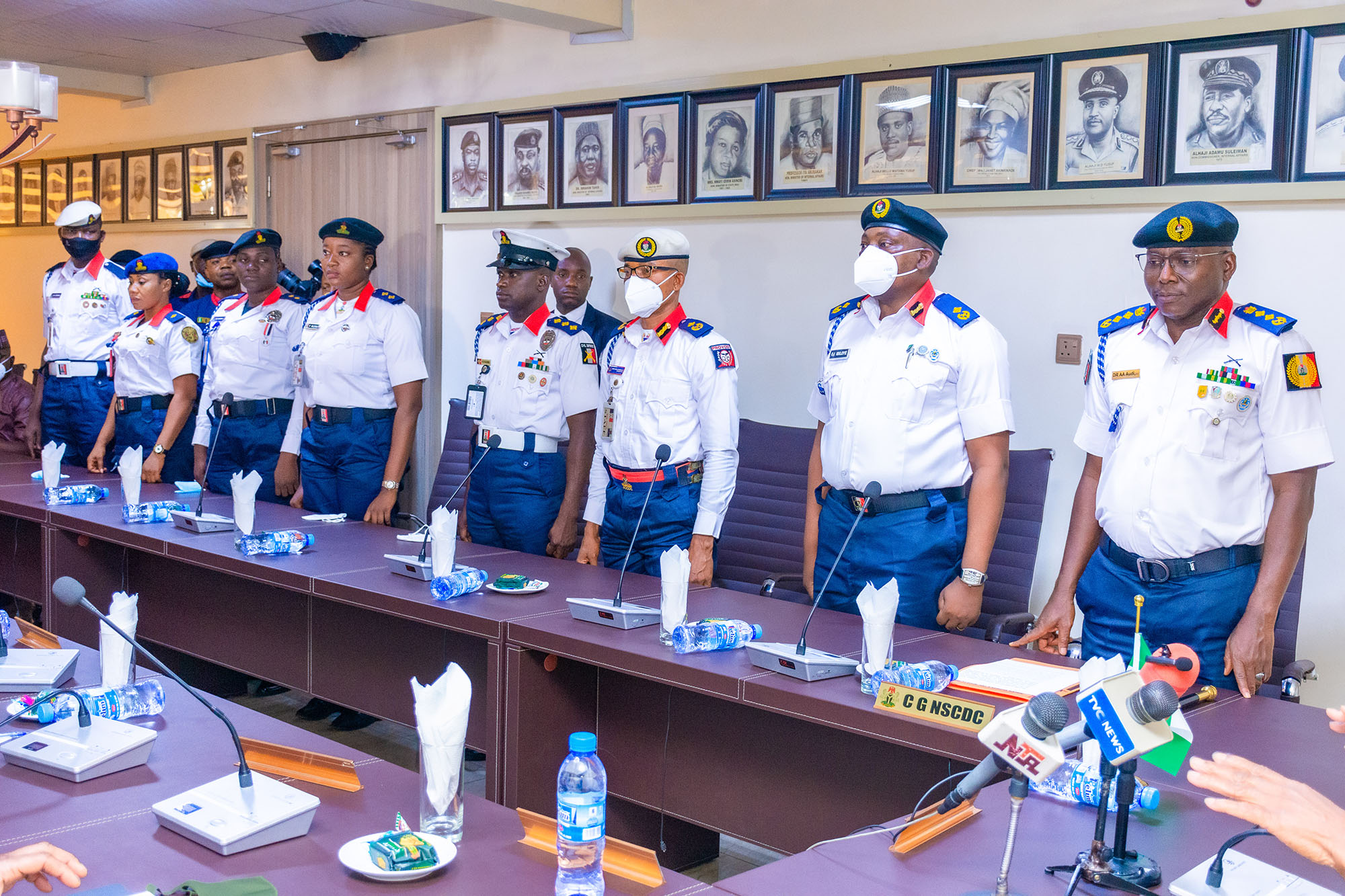
Security agencies have initiated discussions with communities in Rivers State to safeguard pipelines and other critical national assets situated in their domain.
The Commissioner of Police in the State, Olugbenga Adepoju, announced this development in a statement in Port Harcourt.
Adepoju stated that the talks were necessary to ease tension in the State.
He disclosed that the state’s Sole Administrator, retired Vice Adm. Ibok-Ete Ibas, had directed security agencies to collaborate closely with local communities to protect critical infrastructures.
According to him, security agencies participating in the initiative include the Police, Nigerian Army, Navy, Air Force, Department of State Services (DSS), and Nigeria Security and Civil Defence Corps (NSCDC).
“These engagements with the communities aim to foster collaboration between security agencies and local stakeholders for the protection of critical national assets”, Adepoju explained.
He stated that the discussions commenced on April 25 between security operatives and community representatives in Abua/Odual, Emohua, Tai, Ogu/Bolo, Okirika and Eleme Local Government Areas (LGAs).
“During the dialogues with the community stakeholders, we addressed prevailing security issues and the general welfare of the residents.
“These discussions are essential in enhancing synergy between the communities and security agencies to protect vital infrastructure for the benefit of the national economy.
“The engagements also sought to identify challenges facing the communities beyond security, which will be communicated to the government for necessary attention , he stated.
The Commissioner of Police stated that during the meeting with stakeholders in Tai LGA, residents requested the rehabilitation of the Soghai Farm and creation of job opportunities.
Other issues raised by the people of Tai included insufficient staffing at health centres and schools in Bunu, Seme and Nonwa communities.
In Ogu/Bolo LGA, Adepoju reported that residents demanded the construction of a befitting police station, youth empowerment and employment initiatives, and an end to frequent robberies and kidnappings on the waterways.
“In Okirika LGA, stakeholders identified armed robbery as a major concern in the area and requested an increased police presence.
“They also called for the establishment of modular refineries, JAMB CBT centres, vocational training for youths, empowerment schemes for women, and the rehabilitation of the Daka Market”, he stated.
Adepoju further noted that during the engagement in Eleme LGA, residents expressed concerns over persistent electricity shortages and alleged criminal activities by herders in the area.
According to him, the people of Eleme also appealed to security agencies to intensify patrols and undertake a mop-up operation to remove illegal arms.
“In Emohua, community stakeholders appealed for adequate funding for local security outfits and the rehabilitation of primary healthcare centres.
“In Abua/Odual, residents urged the Sole Administrator of the State to initiate infrastructure projects, including the construction of roads, healthcare facilities, potable water systems, and youth empowerment programmes”, Adepoju concluded.
Theresa Frederick & Charity Amiso
Rivers
Ibas Preaches Peace In Emohua
As part of measures to curb incessant crisis in their communities, the Sole Administrator of Rivers State, Vice Admiral Ibok-Ette Ikwe Ibas (rtd.) has charged the people of Emohua to cooporate with security agencies to ensure lasting peace in their communities.
Ibas stated this recently during an interactive session at the Ngozi Kekwaru Pavilion in Rumuakunde, the Emohua Council Headquarters.
The Sole Administrator, who was represented by the State Commissioner of Police, Mr. Olugbenga Adepoju, and a delegation of Service Chiefs across the Military, in his speech, said the session was imperative for the sole administrator to be acquainted with the challenges facing the people.
He noted that when such challenges are identified, solutions will be proffered, adding that he is keen on initiating developmental projects that will impact on the lives of the populace.
He also charged the people to synergise with security outfits in their domains, tasking them to jealously guard all critical infrastructures relevant to the Federal Government and those that serve them as a people.
“We want unity, we want everyone to work together so that the Sole Administrator can have enough time to develop what he can as he is interested in your welfare and can do what he feels you need most”, he said.
In his remarks, the Administrator of Emohua Local Government Council, Franklin Ajinwo, disclosed that the essence of the session was to discuss the affairs of the Local Government Area bordering on such areas as security of lives and properties, peaceful coexistence, environmental sanitation, conflict resolution, and access to health care.
Ajinwo also enjoined everyone to align with the mandate of promoting peace across all frontiers, saying it is the panacea to attract more development, describing the Local Government as one of the safest and most peaceful in the State.
He lauded the Divisional Police Officers in the area over what he described as a job well done and thanked the Service Chiefs for their visit.
Issues highlighted by various speakers facing the Emohua people include security, youth restiveness, dilapidated and abandoned projects across the area, unemployment, poor power supply, bad roads chieftaincy tussles and improved agricultural practices.
Participants were drawn from the traditional institutions, clergy, youth groups, women and men organisations and the physically challenged.
The event climaxed with an inspection tour of some projects in Ogbakiri and Ibaa communities.
King Onunwor
-
Rivers2 days ago
LG Boss Targets Education Reforms, Others
-

 Politics2 days ago
Politics2 days agoKano Gov Approves N15.6bn To Settle Ex-APC Councillors’ Entitlements
-
Sports2 days ago
UCL: Henry Calls For Return Of Away Goals Rule
-
News2 days ago
UK-Nigeria Partnership Strengthened To Combat Fraud
-
Politics2 days ago
2027: Diri Threatens To Sack Appointees Who Jump INEC’s Whistle
-
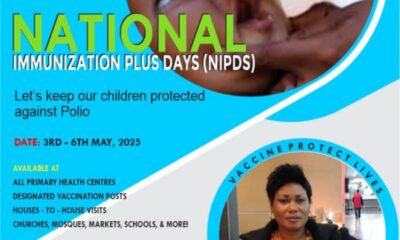
 Niger Delta1 day ago
Niger Delta1 day agoRivers Begins, Supplemental Polio Vaccination, Morrow
-
Rivers2 days ago
Ibas Preaches Peace In Emohua
-

 Nation2 days ago
Nation2 days agoTinubu To Unveil Cotton Factory In Ogun – Abiodun

